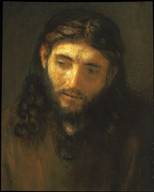The story of 'L'Enfant Prodigue' is a reworking of the parable of the prodigal son, but told through the eyes of the mother. The biblical story is entirely male - the father and two sons and a servant are the only characters that appear. The opera takes a more female approach - the mother grieving for her lost son, and when he returns she pleads with her husband to take him back. It struck me that this reworking could only be written by a Catholic librettist for whom the figure of Mary, the mediatrix, is central. The relationship between mother and son appeals very deeply to the human psyche (Freud had much to say about it), and who could not be moved by the tender reuniting of mother and son. The parable, on the other hand, reveals something of the nature of God as Father which the opera (perhaps deliberately) avoids. Yes, the characters in the opera end by giving thanks to God - 'The Eternal One' - at the end, but essentially the story is about human love, forgiveness and redemption rather than the eternal love of a heavenly Father. Musically, as an early work of Debussy it was more reminiscent of Chabrier and Bizet.
In complete contrast the second opera by Donizetti was set in the chicest of chic clothes store - think of Armani or Prada - with the characters dressed in a curious mixture of high blown 16th century long dresses, tights and puffed sleeves and 21st century Italian suits. The plot has as much substance as a soufflé, but is full of wit and delight. It concerns a jealous husband who keeps his wife under lock and key for fear of other men. The rest is too silly to mention. But the production fizzed with energy and life, moving from the 'House of Valois' (aka Armani) to the (Tennis) Court of Valois. The original plot actually specifies a hunt scene followed by a jousting tournament.
The Donizetti was as shallow as the Debussy was deep - but for all that I enjoyed them both immensely. One was food for the soul and the other a 'zabligione' for the senses.
